Film Review︱Yuko's Scales: Her Justice, and Her Dilemma
introduction
For some people, the heart doesn't seem as steadfast as they think. Career ideals will face the impact of workplace reality and a larger socio-political environment; those beliefs that can make the world more equal, open and free, in the process of practice, will be because of their own unbearable, their own weaknesses, His own hypocrisy was put to the test.
On the one hand, how to reflect on yourself, how to continue to revise your thoughts through accumulated learning and experience life, and then insist on finding a new way out, is undoubtedly important. On the other hand, what if the "social reality" of a part of the population is still indifferent to people's voices?
The Japanese film "The Balance of Yuko", written and directed by Yujiro Harumoto and starring Komi Takinai, tells the story of how a documentary director's career ideals are affected by "family scandal" and how she chooses.
Movie basic information and introduction
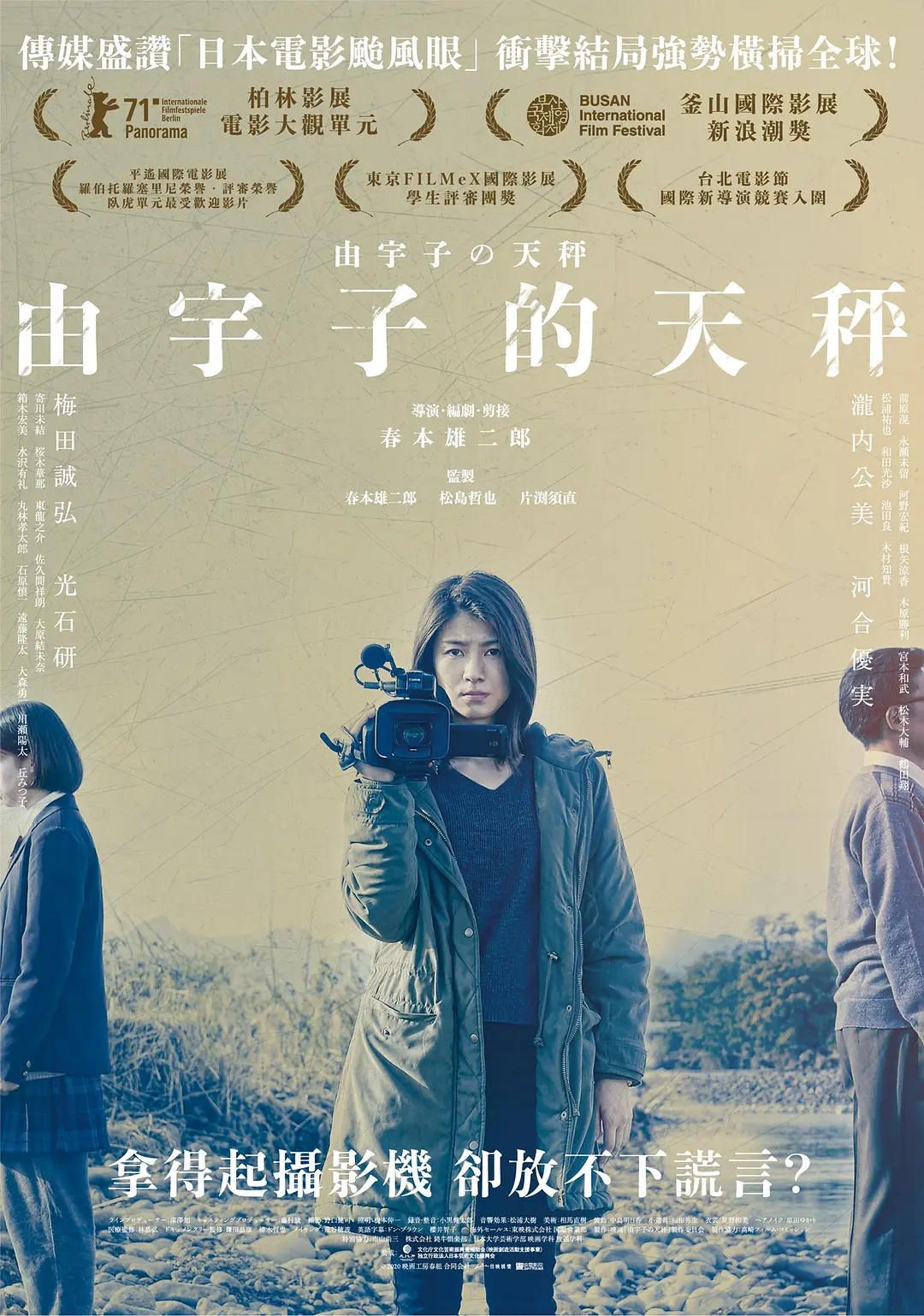
"The Balance of Yuko" is the second feature film written and directed by Yujiro Harumoto after "Becoming a Family" (2016). It was selected by the audience at the 4th Pingyao International Film Festival in 2020. The "Crouching Tiger" category, the most popular film, won the New Wave Award at the 25th Busan Film Festival and was shortlisted for the Panorama section of the 71st Berlin Film Festival, and was also recognized by Japanese film critics.
The story of the film revolves around a woman who is also a TV documentary director and a cram school teacher.
Kinoshita Yuko was commissioned by the TV station to shoot a documentary focusing on the suicide of a young girl. Hasebe Hiromi claimed that she had been bullied at the school, but the school denied it. In turn, said Hiromi had an improper relationship with the teacher Yano Kazuyuki, but Hiromi and Yano did not admit it. After the school asked Guangmei to drop out of school, a 16-year-old girl committed suicide by throwing herself into the river. As the situation became more serious, the school held a press conference to reiterate its position and maintain that Guangmei’s suicide was not the school’s responsibility. According to reports, Yano committed suicide after leaving a suicide note against the school and the media.
After Yuzi interviewed Hiromi's father Hasebe Hiro, he believed that the most important thing in the whole incident was the school's attitude towards Hiromi's suicide, and it was the media's exaggeration when reporting. The leaders of the documentary department did not want the media to be criticized. Yuko pointed the finger at the school and created the "truth" of the confrontation between parents and teachers and the school. Although Yuko made a compromise, she still adhered to the principle of balanced reporting and actively interviewed relatives of Hiromi and Yano.
At the same time, Yuko and her father, Masashi Kinoshita, run a tutoring agency. A teenage girl named Moe Obata told Yuko that Masashi Kinoshita had sex with her and that she is now pregnant. After Yu Yuzi questioned her father, her father admitted that it was true. Yu Yuzi wanted to take good care of Moe Xiaohata and take her for an abortion without the pregnancy incident being exposed. However, the follow-up of the incident was beyond her expectations... ...
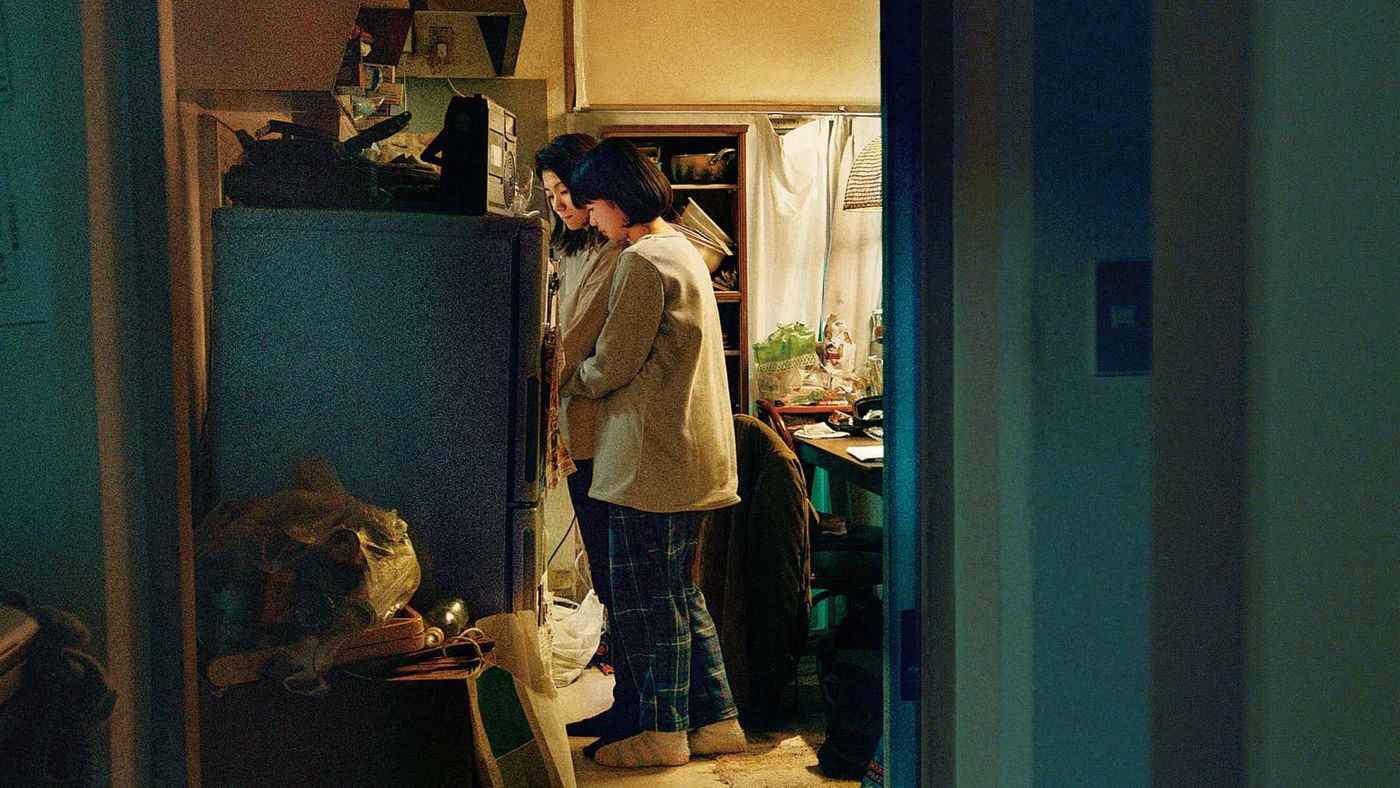
"No matter how the judiciary decides, it cannot escape the sanctions of society"
If the person you are going to admit is yourself, do you still think it's cool to admit that you're wrong?
When Yu Yuzi realized that the direction of filming might mislead the audience, she increased the content to focus on. As a result, her boss rejected her idea on the grounds that it would not benefit everyone if she pointed the finger at the media. She did not give up completely, said : "I think admitting mistakes is a very handsome act."
"Admitting mistakes" here is a kind of professional ethics of media practitioners, in order to correct deviations and achieve objectivity and fairness. After that, Yuko took the opportunity to shoot more material. She compared the views of Hasebe Hiromi's family, Yano Kazuo's family and the school, looking for the differences, and trying to dig deeper into the context behind the appearance to achieve a balance purpose of the report. This process is like a jigsaw puzzle, and each fact is a piece of the puzzle.
However, in the face of her father's deviant behavior, in the face of his confession that he wanted to reveal to the girl's father and was willing to be punished, Yuko was unwilling to hand over this puzzle piece. She would rather hide it from the society. The media will try or question the father, her, and even all those who are related to the Kinoshita family one by one.
In an interview, Yujiro Harumoto talked about the opportunity for him to create this film [1]:
The inspiration for the idea of this film was a bullying suicide case that happened in an elementary school. In this case, the boy's father and a person with the same name were subjected to cyber violence. The society's accusations are not directed at the perpetrators themselves, but at their family members. Even a person with the same name and surname who has nothing to do with the case was also attacked online. I think it's scary to live in a time when bashing is so extreme. It was then that I imagined what would happen if the director of a documentary program on the family of a perpetrator also committed a crime by his own relatives?
If the people filming the documentary think they are doing the right thing, for the sake of society, that sense of justice is shaken by themselves being the family of the perpetrator. Then, can a documentary filmmaker point the camera at his own darkness? I think the narrative structure itself is interesting.
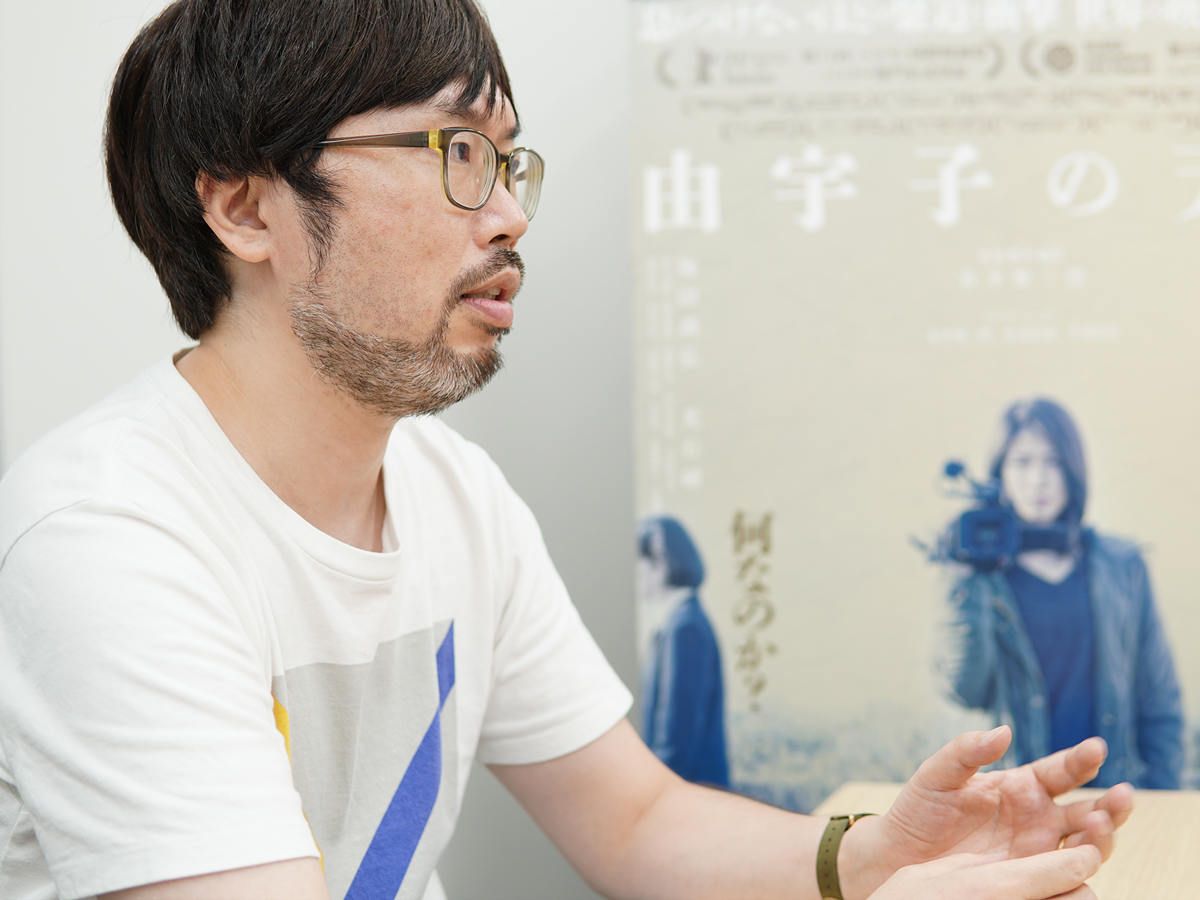
The Yano family's daily life has been seriously affected because of this bullying suicide case. Yano's mother Toshiko and sister Shiho can no longer live in their original home. In order to avoid the media and human flesh searches, Yano Toshiko lives. In the days when he was hiding in Tibet, Yano Shiho was divorced, raising his daughter and working part-time. Once his name was known, he was forced to move.
In the article "Unlike the family members of victims who can cry loudly, "they" can only be silent - read "Families of the perpetrators: a silent hell where you can't cry or laugh", the author introduces how the Japanese treat the family members of the perpetrators , the "nationality" behind it [2]:
The Japanese who always pursue harmony and reject "troubling others" will impose "sanctions" on anyone who "destroys the harmonious order". Crime, especially murder, which completely destroys moral values, has become an "absolute evil" that cannot be tolerated by the people.
(abbreviated)
Nobumoto Suzuki pointed out sharply that the theory of punishment and retribution for dragging the family of the perpetrator out of the public trial, as well as the powerful mechanics of emphasizing "harmony" hidden in the "traditional settlements" domestic, are still deeply embedded in the minds of modern people even after the Meiji Restoration and the revision of the rule of law. middle.
After the incident was exposed, the cram school could not be opened, and the job of a documentary filmmaker might not be preserved. The father and daughter had to consider moving.
In such a reality, Yuyuzi, who knew how the media would manipulate public opinion, flinched. She is usually confident and brave. She has a habit of taking out her mobile phone when she is about to question others. The words and deeds were filmed, but except for the last scene, she did not once point the camera at herself.
The power of video is too great.
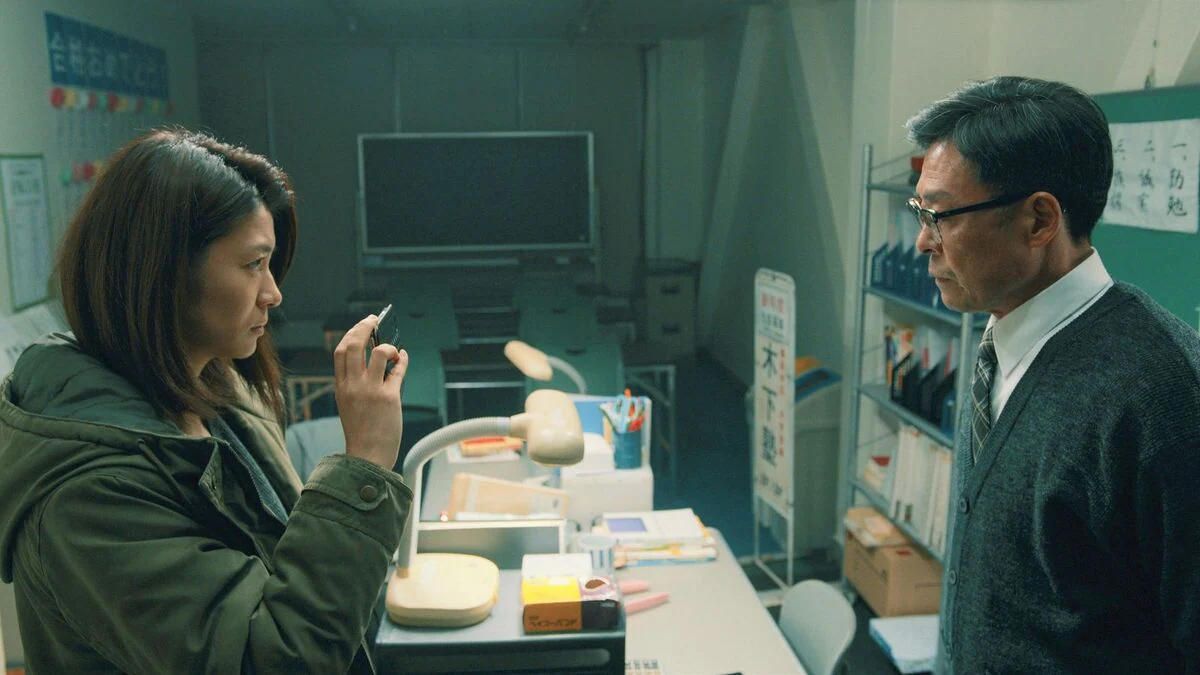
When Yuko learned about the rumors that Moe Xiaohata was selling her spring, she wanted to find out if the child in Moe's belly was her father's, which caused Moe, who was in the car, to run away and eventually fainted on the road. After being sent to the hospital, Moe's father, Tetsuya Ohata, still knew the fact that his daughter was pregnant.
Previously, Yano Shiho took the initiative to find Yuyuzi. She admitted that she forged and replaced the suicide note written by her younger brother before committing suicide, and showed Yano Kazuyuki’s mobile phone to Yuyuzi. There was a video in the mobile phone, recording the male teacher sexually assaulting minors. * Facts about schoolgirls. Yuko treated Yano Shiho's mother and daughter with kindness, Yano Shiho was greatly moved, and Yano Kazuyuki, who was bankrupt in front of the school and the media, actually committed suicide because of fear of crime. His sister, with a broken heart and huge pressure, will take the most An important piece of the puzzle was handed over to Yuko.
*From April 1, 2022, the age of majority stipulated in Japan's Civil Code will be lowered from 20 to 18.
In the end, Yuko still revealed the "family ugly" to Tetsuya Obata. The reason for doing so was, first, her sympathy for Moe and Shiho's daughter, Yano Airisa; second, she saw Tetsuya Obata also confronting her daughter by selling her spring. Vulnerability and overwhelm at the time of the rumor; thirdly, she witnessed the mental journey of the family of the perpetrator after learning the truth; fourthly, she may need an outlet to release her suppressed sense of justice, even if she has to pay the price .
Tetsuya Obata angrily grabbed Yuko by the neck, she fell to the ground, and the man walked away absentmindedly. Imaginative design [1]. Did she die like this? Suddenly, the phone rang, Yu Yuzi coughed, breaking the atmosphere, and the camera moved to a place where she could see her body. After she got the notice of the cancellation of the show, she tried to sit down. She took out her phone and pressed the button. the record button...
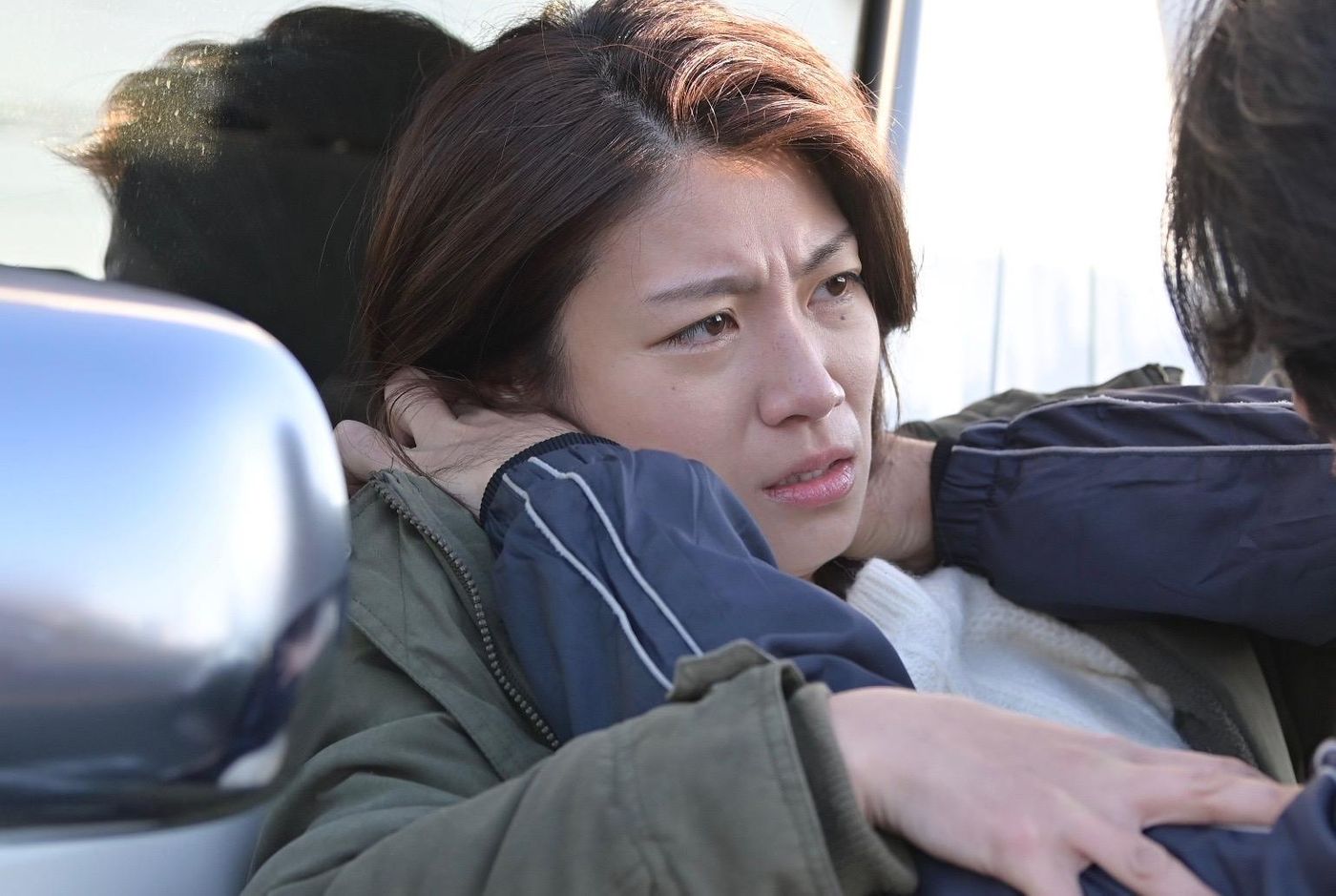
An opportunity that may make the public understand and reflect on social issues. She died before it came out. Yuko didn't have time to investigate whether Oba Moe was pregnant because of Kinoshita Masaki, but it was necessary to speak out - the school's response to bullying Insufficient attention to the incident, concealment of evil deeds during sexual assault, middle-aged educators taking advantage of the lack of social system and minors’ lack of understanding of sex, using girls’ bodies to satisfy their desires, public opinion’s right to know and citizens’ right to privacy. Tension, patriarchal society's systematic squeeze on women - there's enough of a problem in this country.
Yuko reminds herself that she still has the ability to record with the camera, in response to her still alive.
From "Just Dysmenorrhea" to "One Sex"
Hasebe Hiromi and Obata Moe have both had a hard time, and it is not clear what will happen to Yano Airisa in the future.
Domestic violence, sexual assault and school bullying are major social problems that destroy the mind and body of minors. "The Balance of You Yuzi" presents sexual assault in an indirect way. The description of school bullying remains in the dialogue of the characters, but in the On the family issue, the film pays more attention, and the scene arrangement of the Obata family is the key to visualize this issue.
Both Hasebe Ren and Obata Tetsuya are the kind of fathers who will pour their dissatisfaction directly on their daughters, and they will regret it only after their daughters have an accident. Of course, in the limited space of the movie, the two fathers still show different aspects: Hasebe Ren's belief that he does not want to admit defeat to society, his sympathy for Yano Toshiko, the economic predicament that Tetsuya Obata is also facing, he sees his daughter seriously After going to school, the attitude has changed...
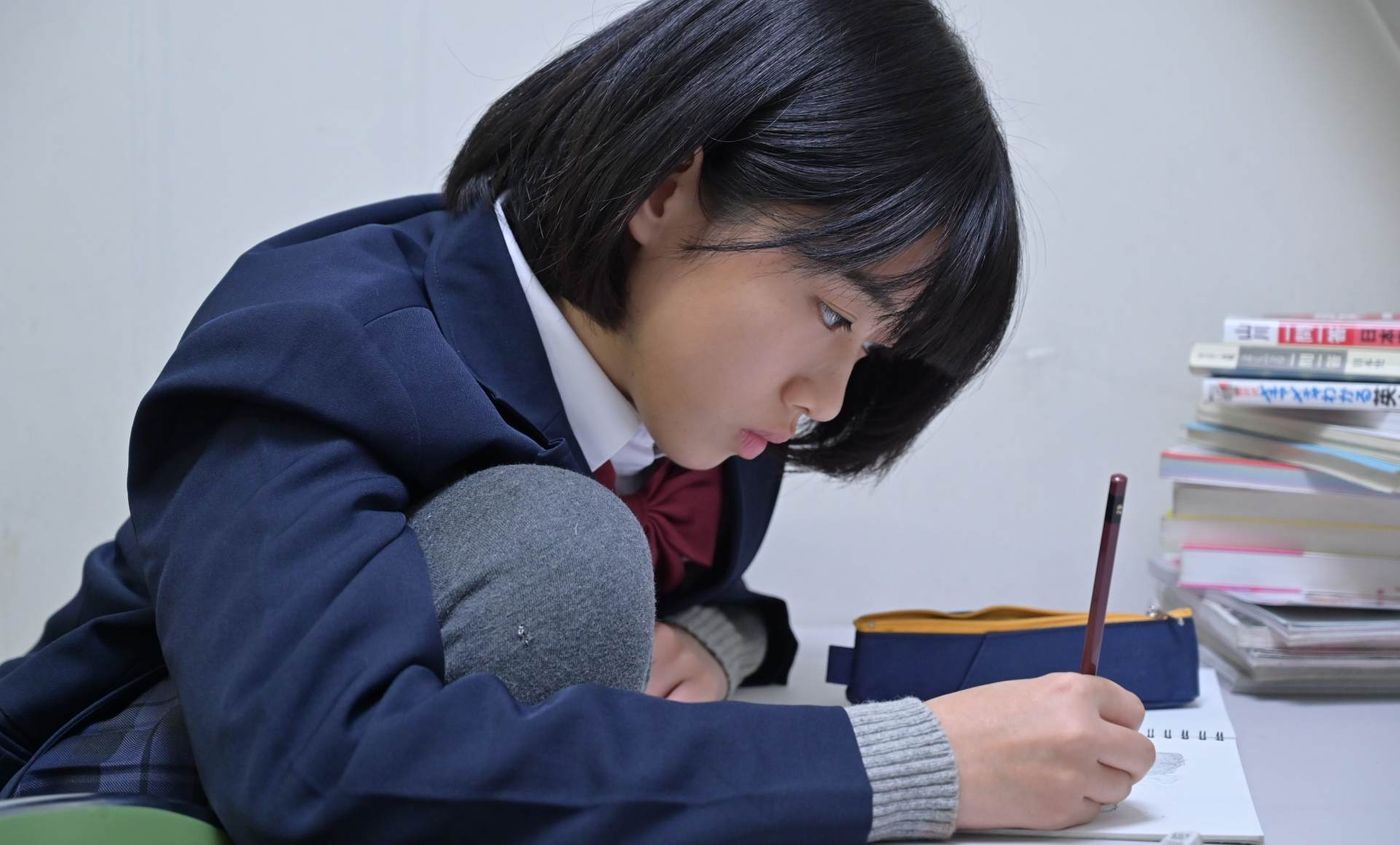
Father's emotions can sometimes reflect social issues, including how to view and talk about menstrual pain. Moe vomited in a cram school one day. Yuko thought she had menstrual cramps and wanted to take her to the hospital, and informed Tetsuya Kobata. When he came to Xiaobata's house to get his health insurance card, Moe said that he was pregnant. After testing and confirming it with a pregnancy test stick, Yuyuko was shocked. Moe cried and said that she didn't want others to know, including her father. Tetsuya Ohata just came home and saw Moe curled up on the sofa, and said to Yuko: "I'm so sorry, It's just because of menstrual cramps." Then he said to his daughter, "Is it all right after a sleep?"
The father who speaks such harsh words is poor and away from home all day, and lacks time to communicate with his daughter. He hopes that his daughter will not become a person like him in the future, which is his hope, and this hope is based on his lack of knowledge about sex, over gender knowledge. Men who do not understand the basic structure of women's physiology make demands on the bodies of underage women. Moe, who is bound by the hidden dangers of blood, his life choices, and a man's sexual desire, wants to attend an ordinary university, do an ordinary job, and receive an ordinary salary under this premise.
When you pass out, you don't have to think about anything. This is the ending of Meng's movie.
"You Yuzi's Scales" is rather vague on the issue of minors' sexual consent*. First of all, is Moe in the second year of high school over 18 years old*, and then, assuming that there is a rumor that Moe is selling spring, is it Moe or Masashi Kinoshita who proposed sexual intercourse first, and was Moe asked to do it during the intercourse? something she didn't want to do. But no matter who brought it up first, having sex with a minor becomes a valuable thing.
*The current age of sexual consent in Japan is still 13.
* Local governments in Japan have formulated regulations on the protection and rearing of young people. Among them, the "Prostitution Regulations" also prohibit sexual intercourse with teenagers under the age of 18. Penalties are determined by the local governments themselves with fines or fixed-term imprisonment. If both parties are under the age of 18, it is up to the guardians of both parties to decide whether to file a complaint (from Wikipedia).
"It is only professional enough to imagine accidents." This sentence to Yuyuko's preaching has become the biggest foreshadowing of the development of Kinoshita Masashi's own story.
References:
【1】Cinemore: "By Yuko's Libra" Harumoto Yujiro Supervises Silias な Social Sex, High Level of Consistency, The Most Important Work of This Year, いかにして生み出されたのか【Director's Interview Vol.141】
[2] Blog to OKAPI: Unlike the families of the victims who can cry loudly, "they" can only be silent - read "Families of the perpetrators: A Silent Hell Where You Can't Cry or Laugh" (Author: Qiao Qi'an)
Like my work? Don't forget to support and clap, let me know that you are with me on the road of creation. Keep this enthusiasm together!
